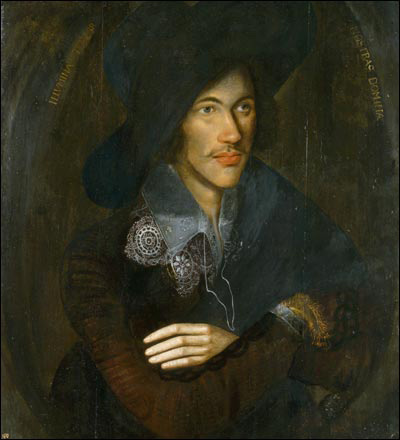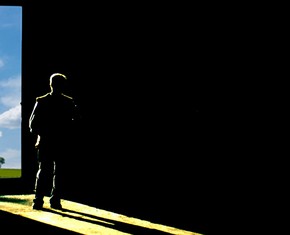The views expressed in our content reflect individual perspectives and do not represent the authoritative views of the Baha'i Faith.
“No man is an island.”
Probably everyone in the English-speaking world has heard this famous quotation from John Donne, the British poet, satirist, lawyer and cleric who lived during the late 16th and early 17th century (1572-1631). You can read his immortal five words in the original 1624 document: Devotions Upon Emergent Occasions and Seuerall Steps in my Sicknes – Meditation XVII. Hardly anyone does, though, so here’s an excerpt:
All mankind is of one author, and is one volume; when one man dies, one chapter is not torn out of the book, but translated into a better language; and every chapter must be so translated…As therefore the bell that rings to a sermon, calls not upon the preacher only, but upon the congregation to come: so this bell calls us all: but how much more me, who am brought so near the door by this sickness….No man is an island, entire of itself…any man’s death diminishes me, because I am involved in mankind; and therefore never send to know for whom the bell tolls; it tolls for thee.
Written during a period of grave illness when Donne thought he would soon die, this has become one of the most well-known works of poetry ever. Artists of every type and kind – novelists, sculptors, songwriters, poets and painters – have borrowed their inspiration, their titles and their themes from John Donne.
Donne’s poetry covers three main subjects – love, religion and death. Perhaps that reveals the secret to its consistent, unending appeal over the past several hundred years – Donne cared about the eternal, unchanging concerns of every human being. In fact, the great English writer and scholar Samuel Johnson named an entire school of poetry after Donne and some of his contemporaries, calling them “the metaphysical poets.” Those poets, concerned with the ever-fascinating metaphysical subjects of love and death, wrote about moral and religious questions in a new, casual and even conversational way. Influenced by Plato and by the Sufi mystics, Donne and the other metaphysical poets explored the idea of the beauty of the beloved as a reflection of perfect beauty in a spiritual reality.
Many of the people who hear Donne’s most famous line at a wedding or a funeral may think it just means that we need each other as human beings. This simplistic interpretation – that human beings do not thrive when isolated from others – takes the most literal path, which probably would have insulted the poet. Donne meant more than that – he meant, in the broadest sense, that the personal and the political are one; that the boundary between you and I does not ultimately exist.
In Donne’s way of seeing our existence, the death of another person sends a ripple out into the world, preparing all of us for our own transcendence. Using land as a metaphor and comparing the human race to a continent rather than an isolated island, Donne makes one of the first known artistic pleas for the unity of humanity.
“Because I am involved in mankind…” the poet says, telling us that he has discovered his relationship with all people. In the 17th century, this was a radical and even revolutionary belief. Donne said it during a time of rampant slavery, enormous class distinctions and the complete subjugation of certain kinds of people based on gender, race and circumstances of birth. In the line “never send to know for whom the bell tolls, it tolls for thee” the poet’s collective “thee” refers to the entire unified race of humanity.
Challenging death with his faith, the poet asks us all to see his vision of unity before we die.
The Baha’i teachings agree:
The unity which is productive of unlimited results is first a unity of mankind which recognizes that all are sheltered beneath the overshadowing glory of the All-Glorious; that all are servants of one God; for all breathe the same atmosphere, live upon the same earth, move beneath the same heavens, receive effulgence from the same sun and are under the protection of one God. – Abdu’l-Baha, Baha’i World Faith, pp. 257-258.

















Comments
Sign in or create an account
Continue with Googleor